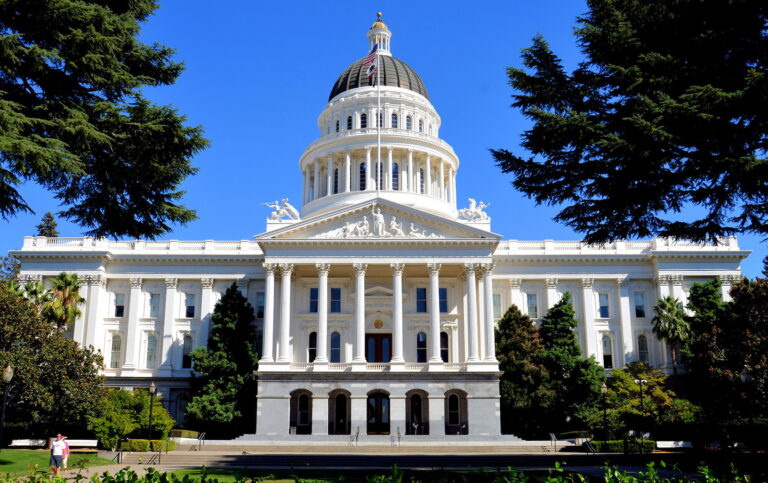July 5, 2017 – While deregulation takes hold in the Trump administration in Washington, the states are predictably working to fill the void. For medical transparency and “sunshine,” California, Maine and Nevada are currently very active.
All three states have taken legislative action in recent months to restrict the ability of pharmaceutical companies to furnish what states deem “gifts” to healthcare professionals. Minnesota already has a law in place and Washington, Colorado, Oregon, and Missouri have legislative activity underway (more details to come as these make their way through the legislative process).
As enabled by the federal Sunshine Act passed as part of the Affordable Care Act, these transparency bills supplement the requirements of the federal law.
“Action in these states may just be the beginning of a resurgence of state laws affecting our industry. While most of the active states are focused on drug pricing measures, marketing issues often surface with the pricing measures. We continue to work with PhRMA and other allies to limit the reach of these measures,” said Jack Angel, Executive Director, Coalition for Healthcare Communication Education Foundation.
Here is a brief summary of legislation being considered in California, Maine and Nevada.
California
California Senate Bill 790 passed in committee in May and was amended in June. It would prohibit manufacturers of a prescribed product from “offering or giving a gift to a healthcare provider” or from “providing a fee, payment, subsidy or other economic benefit to a healthcare provider in connection with the provider’s participation in research, except as specified.”
Manufacturers are prohibited by the bill from offering a gift to a health care provider (HCP); the bill defines “gift” as a payment, food, entertainment, travel, subscription, advance, service or anything of value provided at no cost or at less than full market cost.
However, there are exceptions. Permitted activities include:
- Payment by a manufacturer to the sponsor of a significant educational, medical, scientific or policymaking conference or seminar (with conditions);
- Honoraria and payment of expenses of an HCP who serves as faculty at such a meeting (with conditions);
- Compensation for services provided by (as well as expenses and materials for) HCPs/providers in a bona fide clinical trial or research project;
- Reimbursement for reasonable expenses, including travel and lodging-related expenses for technical training;
- Funding for public health initiatives to develop replicable and sustainable model programs that embody best practices in disease screening and linkages to care;
- Royalties and licensing fees paid to HCPs in return for contractual rights to use or purchase a patented or otherwise legally recognized discovery for which the provider holds the rights;
- Payments to HCPs for participation in bona fide marketing research conducted by a third party (paid for by the third party and made unknown to the manufacturer);
- Other reasonable fees, payments, subsidies or other economic benefits provided by a manufacturer at fair market value;
- Payment of reasonable expenses of an individual related to the interview of the individual by a manufacturer in connection with a bona fide employment opportunity for healthcare services on behalf of an employee of the manufacturer; and
- Provision of meals for a HCP that do not exceed $250 per person, per year, in value in addition to payments otherwise permitted.
Further, manufacturers may provide samples to providers to be disseminated to patients; furnish peer-reviewed academic, scientific or clinical articles or journals and items that “serve a genuine educational function” to an HCP “for the benefit of patients”; provide scholarship or other support for medical students to attend significant conferences/seminars; provide normal rebates and discounts; give financial donations or free products to a free clinic; provide products under a patient assistance program; provide fellowship salary support through grants (with conditions); and supply coffee/snacks/refreshments at a conference or seminar booth.
Although final action is still pending, the California bill is slated to go into effect on Jan. 1, 2019. It also would not allow doctors to be compensated as faculty or speakers at events unless the events are accredited by the Accreditation Council for Continuing Medical Education (ACCME) (or a similar organization).
Maine
Maine’s Legislative Document (LD) 911, passed this spring, prohibits “a person engaged in the manufacture of prescription drugs” from giving a gift to a medical professional, with the following exceptions:
- Professional drug samples for free distribution to patients;
- Items with a total combined retail value (in any calendar year) of less than $50;
- Payments to sponsors of educational programs;
- Honoraria and payments of expenses incurred at an educational conference or meeting;
- Compensation for research, publications or educational materials; and
- Salaries or other benefits paid to employees.
Nevada
In Nevada, patient advocacy organizations/nonprofits must report all payments that they receive from drug companies, pharmacy benefit managers and insurance companies, even if those payments are for research or education, under a bill (SB 539) signed into law June 15. Although this bill is sweeping in terms of the types of funding that must be reported, it focuses on just two types of drugs used to treat diabetes (insulin and biguanides) and seeks to rein in drug pricing for these products.
The new law also requires pharmaceutical sales representatives to register with the state and submit an annual report to the state about their interactions with healthcare professionals. This report must include, for the immediately preceding calendar year: (a) A list of providers of healthcare licensed, certified or registered in the state, pharmacies and employees thereof, operators and employees of medical facilities and persons licensed or certified under certain provisions to whom the pharmaceutical sales representative provided: (1) Any type of compensation with a value that exceeds $10; or (2) Total compensation with a value that exceeds $100 in aggregate; and (b) The name and manufacturer of each prescription drug for which the pharmaceutical sales representative provided a free sample to a provider of health care licensed, certified or registered in the state, pharmacy or employee thereof, operator or employee of a medical facility or person licensed or certified under certain provisions and the name of each such person to whom a free sample was provided.
“While it would appear that the states are attempting to steer clear of any restrictions on scientific materials and educational activities, constant vigilance has to be in place to assure that unintended consequences don’t place an unnecessary burden on communicators,” Angel said.




